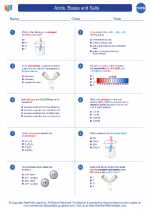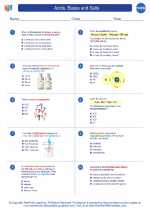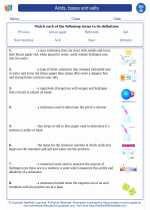Brain
The brain is a complex organ that serves as the control center of the central nervous system in humans and many other animals. It is responsible for processing sensory information, initiating and coordinating motor functions, and controlling higher cognitive functions such as thinking, learning, and memory.
Structure of the Brain
The human brain is divided into several major regions, each with specific functions:
- Cerebrum: Responsible for higher brain functions such as thought, action, and emotion.
- Cerebellum: Coordinates voluntary movements and balance.
- Brainstem: Regulates basic bodily functions such as heartbeat, breathing, and digestion.
- Basal Ganglia: Involved in motor control and procedural learning.
- Limbic System: Regulates emotions, memory, and arousal.
Function of the Brain
The brain performs a wide range of functions, including:
- Processing sensory information from the five senses (sight, hearing, taste, smell, and touch).
- Initiating and coordinating motor functions, allowing us to move and interact with the environment.
- Controlling higher cognitive functions such as thinking, reasoning, problem-solving, and decision-making.
- Regulating emotional responses and behaviors.
- Storing and retrieving memories.
- Regulating basic bodily functions such as heartbeat, breathing, and digestion.
Study Guide
To better understand the brain, students can focus on the following key areas:
- Brain Anatomy: Learn about the different regions of the brain and their functions.
- Neurotransmitters: Understand the role of neurotransmitters in brain function and communication.
- Brain Disorders: Explore common brain disorders such as Alzheimer's disease, Parkinson's disease, and stroke.
- Brain Development: Study the development of the brain from infancy to adulthood.
- Brain Plasticity: Learn about the brain's ability to reorganize and adapt to changes.
By focusing on these areas, students can gain a deeper understanding of the brain and its role in human physiology and behavior.
[Brain] Related Worksheets and Study Guides:
.◂Chemistry Worksheets and Study Guides High School. Acids, Bases and Salts
Worksheet/Answer key Acids, Bases and Salts
Acids, Bases and Salts  Worksheet/Answer key
Worksheet/Answer key Acids, Bases and Salts
Acids, Bases and Salts  Worksheet/Answer key
Worksheet/Answer key Acids, Bases and Salts
Acids, Bases and Salts  Vocabulary/Answer key
Vocabulary/Answer key Acids, bases and salts
Acids, bases and salts 

 Worksheet/Answer key
Worksheet/Answer key
 Worksheet/Answer key
Worksheet/Answer key
 Vocabulary/Answer key
Vocabulary/Answer key

The resources above cover the following skills:
CHEMISTRY
Matter and Its Interactions
Use mathematics and computational thinking to express the concentrations of solutions quantitatively using molarity.
Use the concept of pH as a model to predict the relative properties of strong, weak, concentrated, and dilute acids and bases (e.g., Arrhenius and Brønsted-Lowry acids and bases).